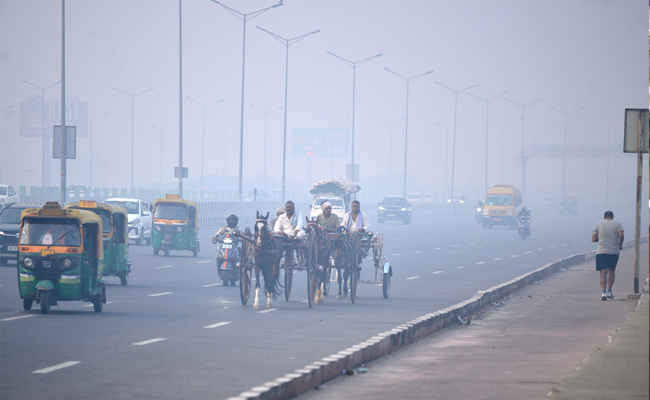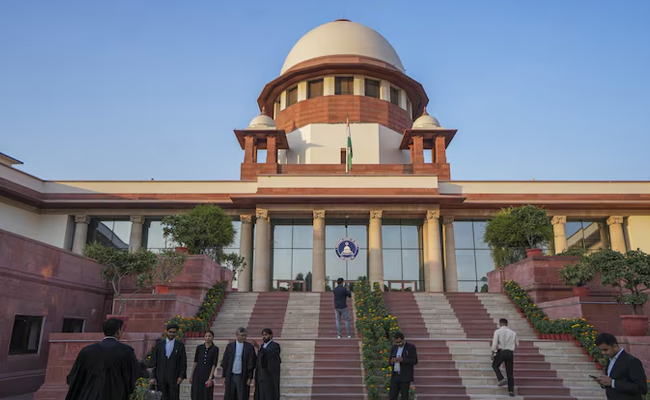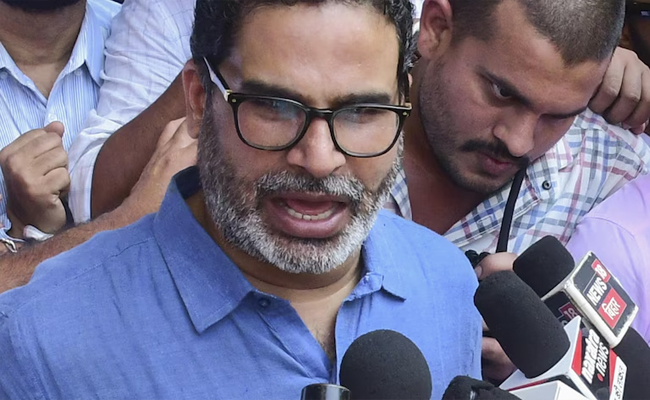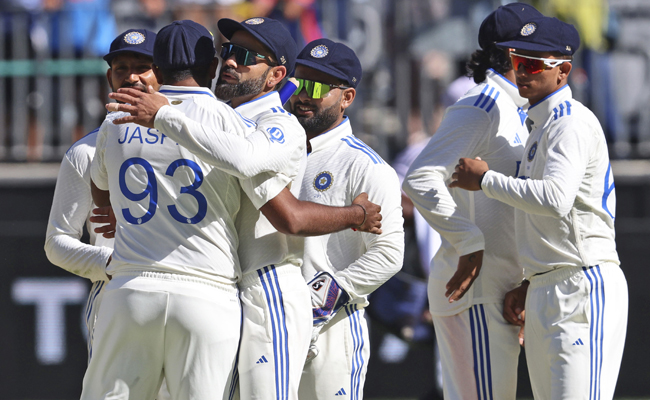New Delhi (PTI): As air pollution levels spike in many cities, the government has urged all states to enhance their preparedness and strengthen the capacity of healthcare workforce to tackle the menace which is likely to worsen in the festival season and onset of winter.
The Union Health Ministry has also urged the public to use public transport and avoid heavily congested areas.
In a letter to states and UTs, Director General of Health Services (DGHS) Dr Atul Goel has advised them to discourage stubble and waste burning and spread awareness among people about reducing firecrackers during festivities, promoting public transportation, limiting reliance on diesel-based generators, and curbing smoking.
"Additionally, individuals should be advised to minimise their exposure to polluted air by monitoring air quality indices through government mobile applications before venturing outdoors, avoiding heavily congested areas, and opting for cleaner fuels at home for cooking, heating, and lighting," Dr Goel said in the letter written last week.
He said air pollution has recently become a serious health challenge, with the Air Quality Index (AQI) in certain states/UTs reaching moderate to poor levels.
This may even worsen considering the upcoming festive season and onset of winter, he said.
Air pollution is a significant contributor to acute health conditions and exacerbates the progression of chronic diseases affecting the respiratory, cardiovascular, and cerebrovascular systems. These chronic illnesses, attributed to prolonged exposure to air pollution, often lead to an increase in premature mortality.
The adverse effects are particularly severe for vulnerable groups such as children, pregnant women, the elderly, individuals with pre-existing health conditions, and those who face higher exposure risks due to their occupations, such as traffic police officers and municipal workers, Dr Goel said.
"In light of this, I urge the state health departments and healthcare facilities to enhance their preparedness. This should include intensifying public awareness campaigns, disseminating targeted messaging through designated mass media channels in regional languages, strengthening the capacity of the healthcare workforce, and scaling up participation in sentinel surveillance systems for air pollution-related diseases under the National Program on Climate Change and Human Health," he said.
He also stressed on raising public awareness about actions to prevent further degradation of air quality at this critical time.
These include discouraging stubble and waste burning, reducing firecrackers during festivities, promoting public transportation over personal diesel- or petrol-powered vehicles, limiting reliance on diesel-based generators, and curbing smoking.
He said outdoor activities such as sports and exercise should be restricted, especially for vulnerable populations like the elderly, pregnant women, and those with pre-existing conditions such as respiratory and cardiovascular diseases.
Those experiencing worsening symptoms or discomfort due to poor air quality should seek immediate medical attention.
Let the Truth be known. If you read VB and like VB, please be a VB Supporter and Help us deliver the Truth to one and all.
New Delhi: The Supreme Court on Monday upheld the inclusion of the words ‘socialist’ and ‘secular’ in the Preamble of the Constitution, confirming their retrospective application from November 26, 1949. The court ruled that the power to amend the Constitution under Article 368 extends to the Preamble, which is an integral part of the document.
A Bench led by Chief Justice of India Sanjiv Khanna stated, “The power under Article 368 cannot be curtailed. It will equally apply to the Preamble.” The 42nd Constitutional Amendment, which introduced these terms in 1976 during the Emergency, was challenged on grounds of its retrospective application and the lack of states’ ratification.
The petitioners, including BJP leader Subramanian Swamy, argued that the amendment forced a particular economic theory on the nation and violated the original intent of the Constitution. Advocate Ashwini Kumar Upadhyay contended that the Preamble reflects the will of the people at the time of adoption in 1949 and is therefore unalterable.
The court dismissed these objections, affirming that both socialism and secularism are part of the Constitution's Basic Structure. The Bench clarified that socialism refers to a welfare state ensuring equality of opportunity without negating private sector participation or individualism. It emphasised that secularism is embedded in the Constitution, particularly in the principles of equality and fraternity.
Chief Justice Khanna remarked, “Secularism has always been a core feature of the Constitution.” He added that the amendment did not impose socialism as dogma but aligned with the welfare goals enshrined in various constitutional provisions.





